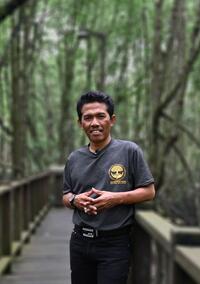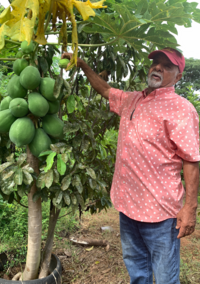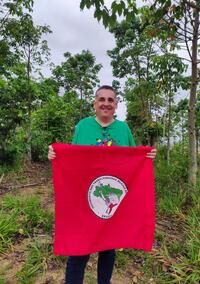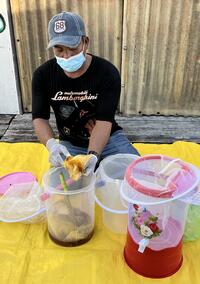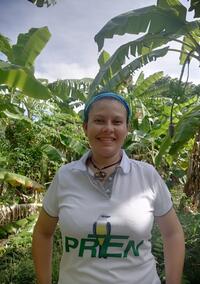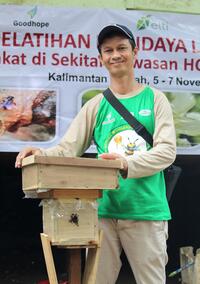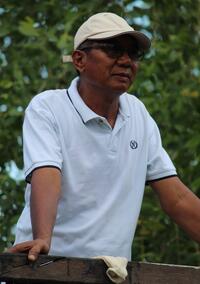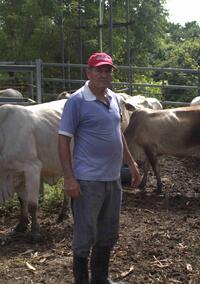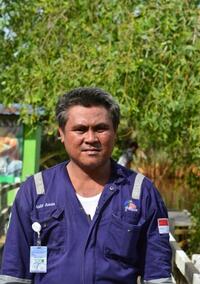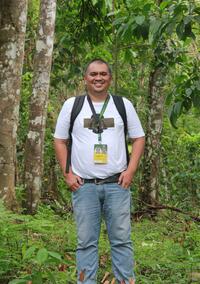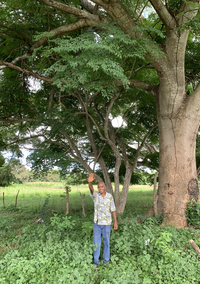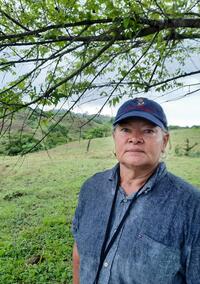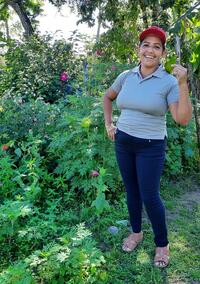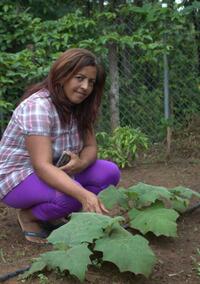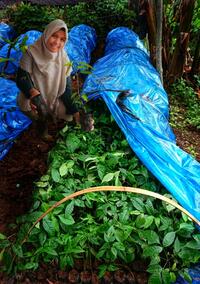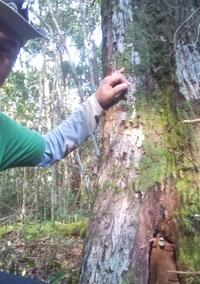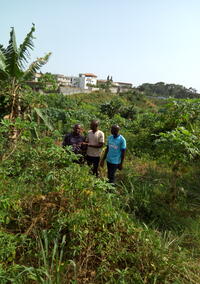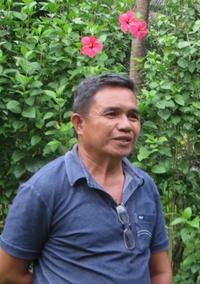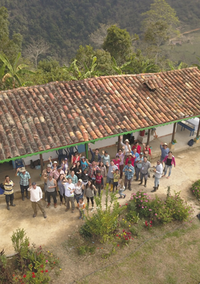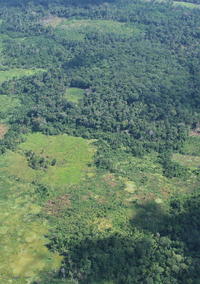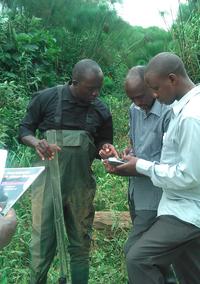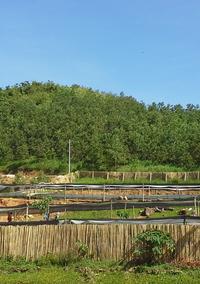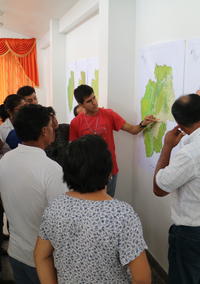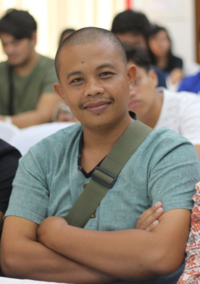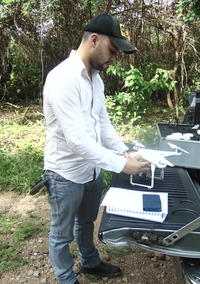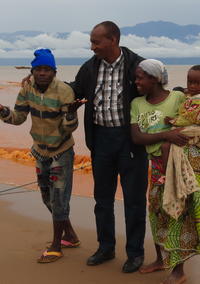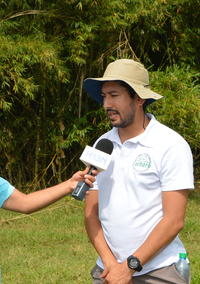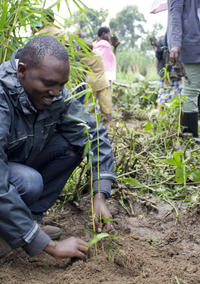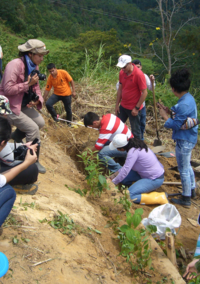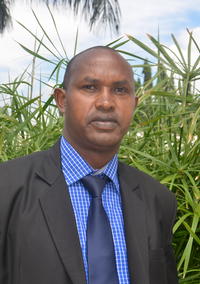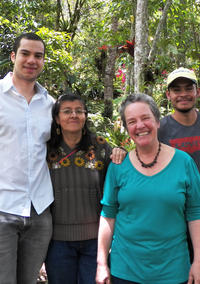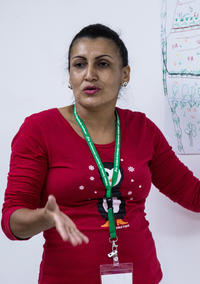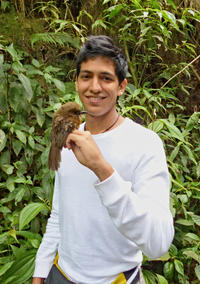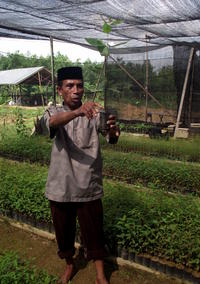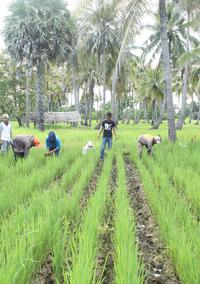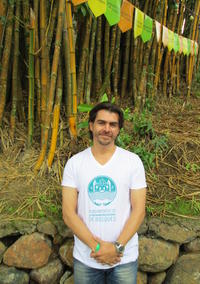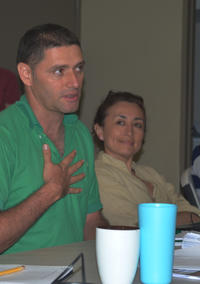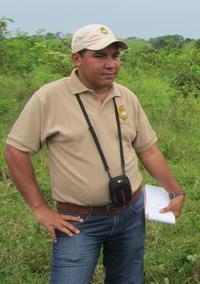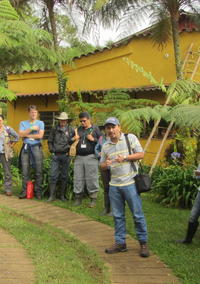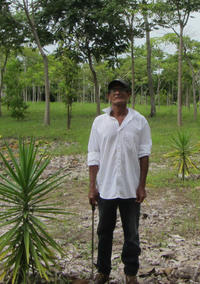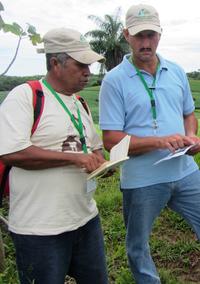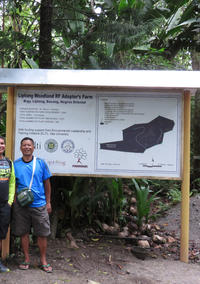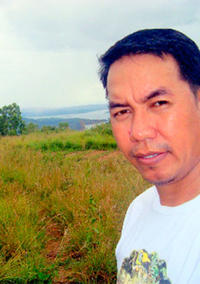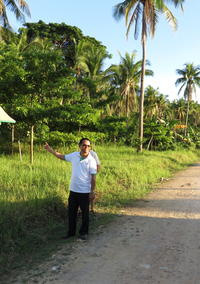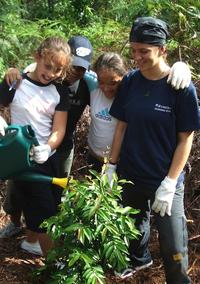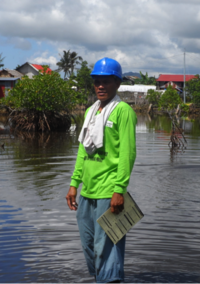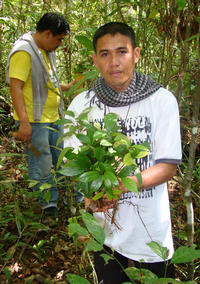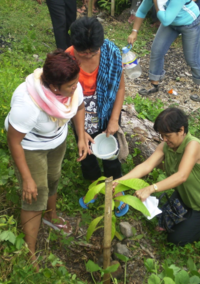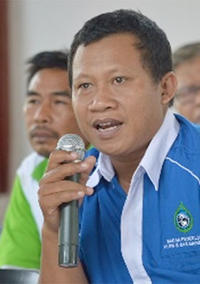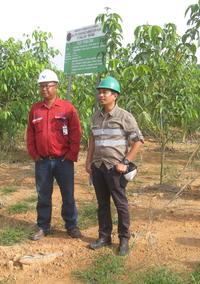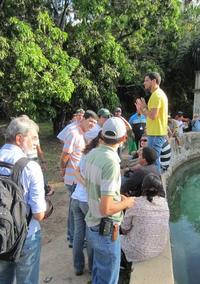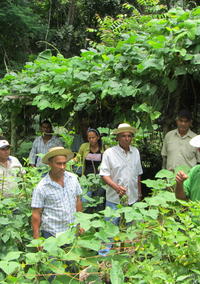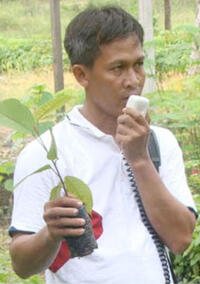You are here
Environmental Restoration Consultant Supports Local Projects in Critical Area of Colombia
Colombia is one of the most biodiverse countries in the world. Unfortunately, deforestation continues to occur due primarily to conventional agricultural practices, forest fires, illegal mining, illicit crops, and urbanization. Consequently, these land-use practices threaten Colombia’s diverse flora and fauna.
One ELTI Alumni is making a difference in his home province of Antioquia, a region rich in biodiversity that experienced the country’s second highest deforestation rate. Santiago Amariles Barrera works as an environmental consultant designing and implementing forest restoration projects with NGOs in the region. He has provided technical assistance to the Colombian NGO, Madremonte, to set up the Women Sowers of Life Network, through which women farmers produce native tree species at small on-farm nurseries for use in local restoration projects.
In order to improve his skills as a practitioner and advance forest restoration activities near his home, Santiago participated in an ELTI field course in Panama entitled, “Ecosystem Services and Tropical Forest Restoration.” The course included field-based exercises, observations, and analyses that were designed for participants to learn about ecological restoration strategies based on scientific knowledge and applied experience.
ELTI’s Focal Training Sites are an ideal place to take a course, since there are so many demonstration areas and hands-on activities. I was able to learn about the monitoring of restoration processes through simple, efficient, and easy to replicate methodologies. The application of this knowledge has led me to develop ecological restoration projects that are more robust and time-enduring. In addition, it also allowed me to share research experiences with experts and my classmates (with whom I am still in contact), and thanks to this, I have acquired different knowledge through collective learning.
Santiago Amariles Barrera
Santiago was particularly inspired by one of the ELTI course themes, the importance of integrating communities into ecological restoration projects, and especially the emphasis on empowering communities to manage their natural resources. He, therefore, requested support via ELTI’s Leadership Program to organize a training for members of the Women Sowers of Life Network. In August 2016, ELTI collaborated with its Colombian partner, the Center for Sustainable Agriculture Systems (CIPAV), to facilitate a three-day ecological restoration exchange with the women’s network in the Cali River Watershed of Colombia.
For most network members, it was their first training opportunity outside of their community. The event provided them with a unique opportunity to learn from, and share experiences with, other small farmers who set up model farms and tree nurseries. Many of the participants were enthusiastic about implementing what they learned on their own farms and will have Santiago for continued assistance.
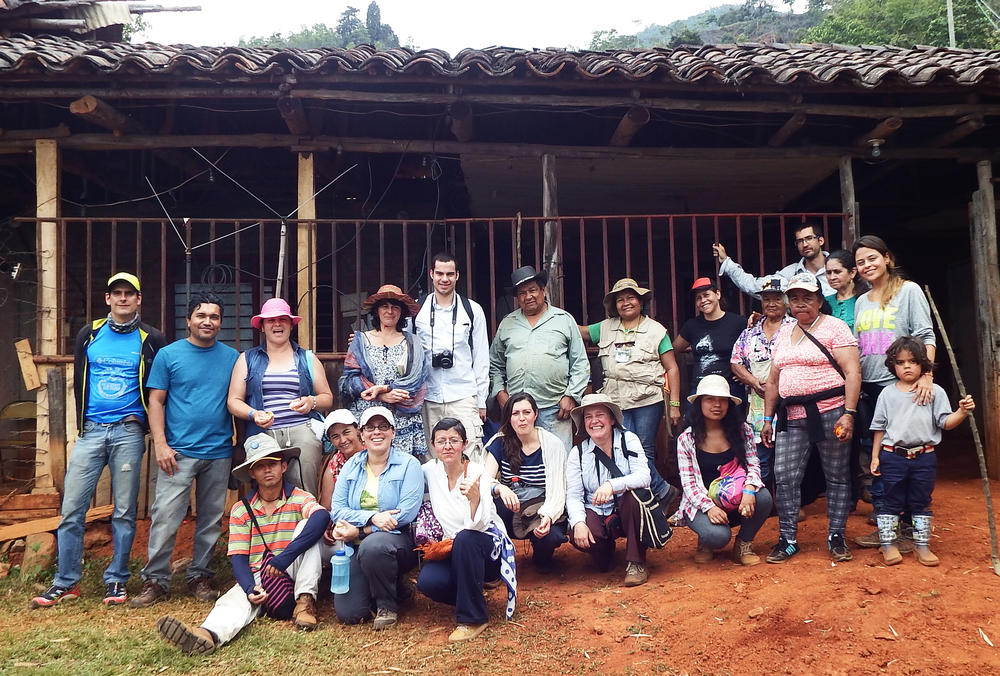
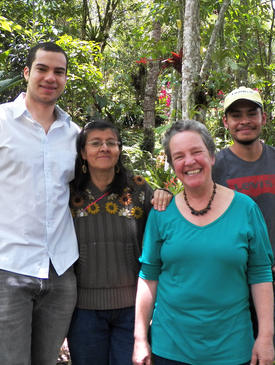
Acknowledgements
Thanks to Nora Londoño from the Madremonte Ecological Association for the opportunity to work with the Women Sowers of Life Network; and to ELTI for continually providing enriching training courses and the support to apply the knowledge to conserve Colombia’s rich biodiversity.


